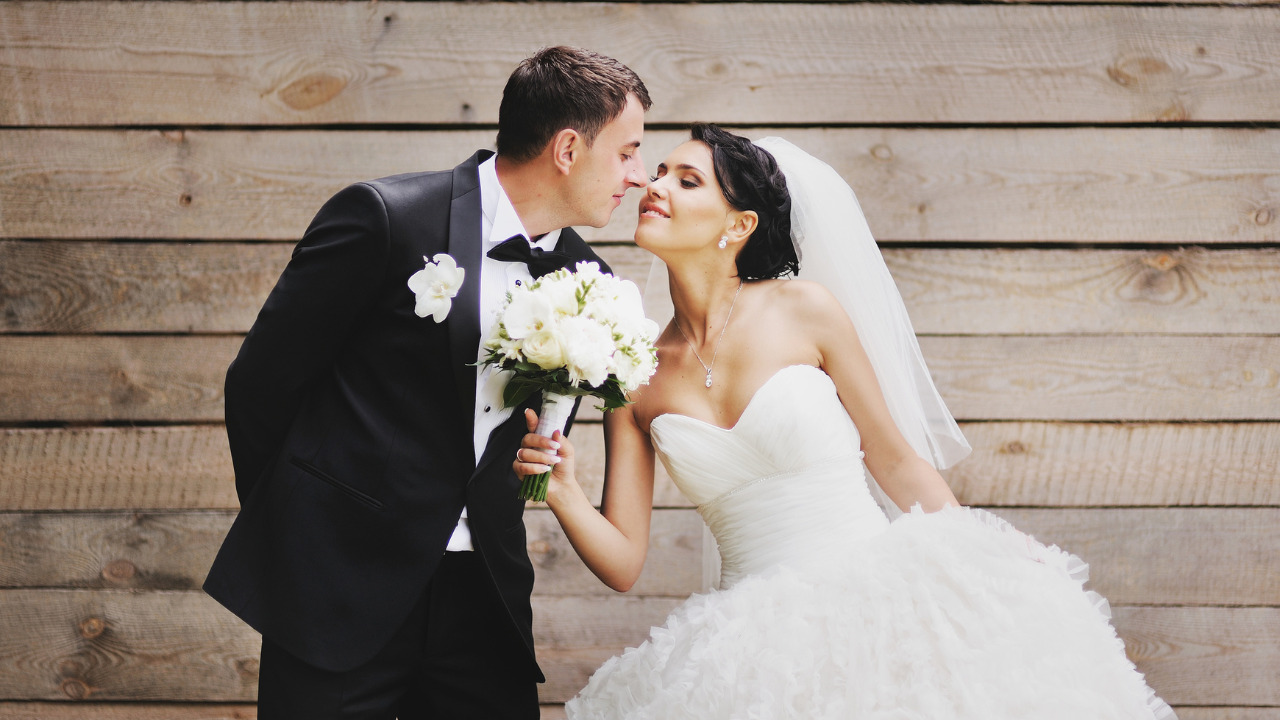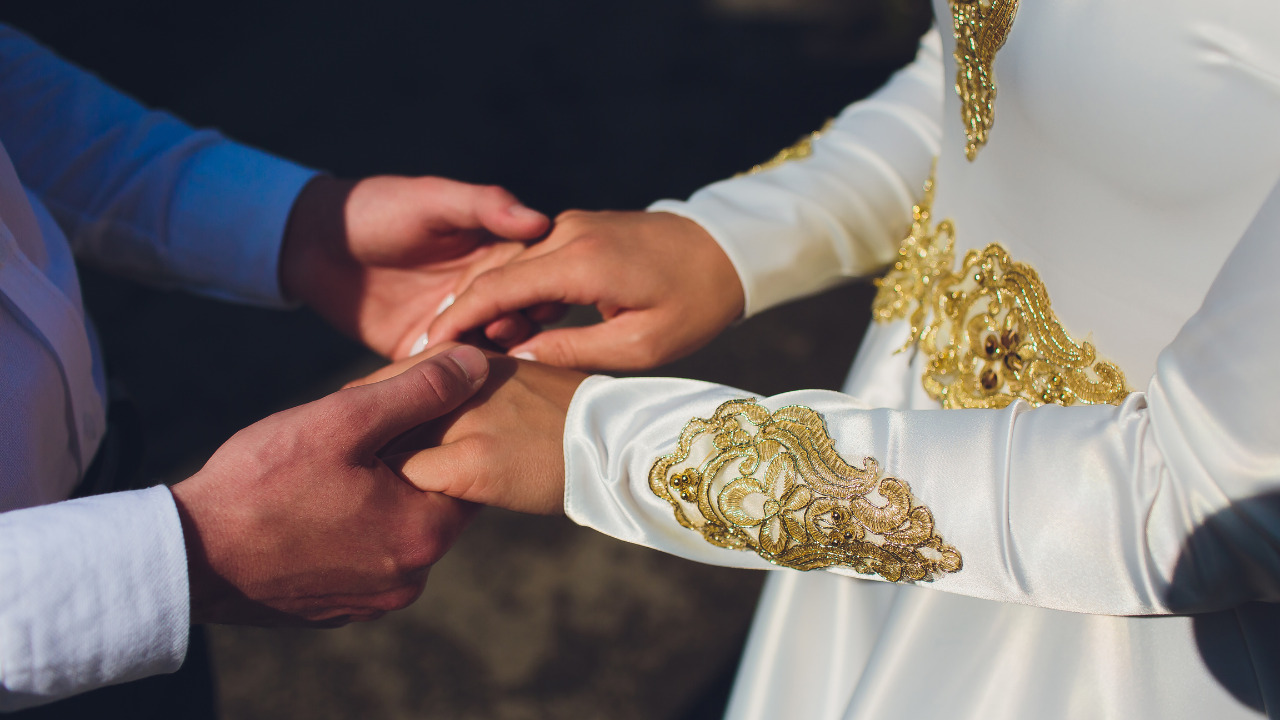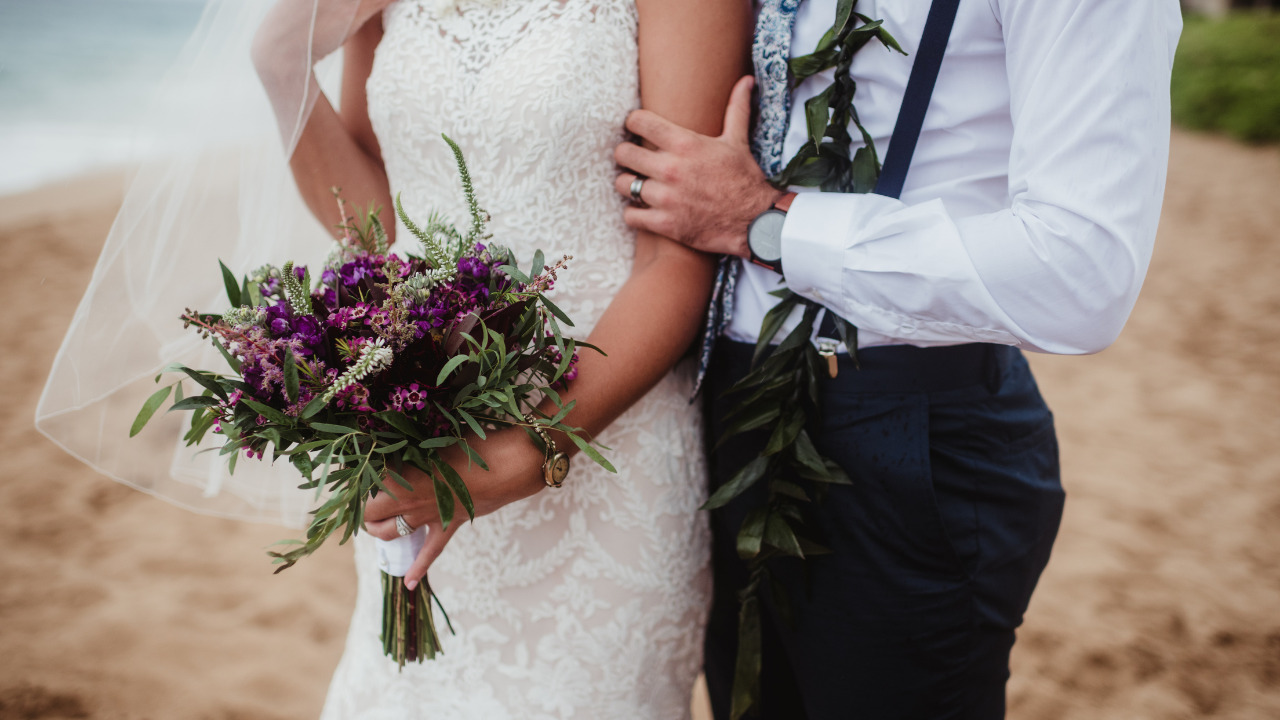Think there’s only one type of wedding planner out there? Think again. From day-of coordinators to destination event designers, you have a wide range of pros and services to choose from to bring your celebration to life. If you’re overwhelmed by the abundance of vendor options, services, price points and unfamiliar terminology, relax—you’re in the right place. Here to clarify all your questions and offer helpful industry expertise is Danielle Couick, owner and principal planner of full-service event planning and design firm Magnolia Bluebird Design & Events based in Rockville, Maryland.
What are the various types of wedding planning pros a couple can choose to hire for their day?
Planner:
“This pro is organized, efficient, timely and logistically minded—budget development and tracking, timelines, floor plans, contracts, deadlines and production schedules are second nature to them,” Couick says. “They recommend, procure and manage your wedding team. They’re on-site from start to finish to coordinate and execute the logistics and all the finer details.”
Designer:
“A designer is a creative, a dreamer, and aesthetics are their strength,” she says. “They see both big-picture and small details. They should listen to your needs and desires, assess the logistical parameters of your wedding, view your space and understand your ideal budget. They’ll develop a cohesive and stylish look, feel, mood and overall aesthetic of your wedding day in a realistic way.”
Event Stylist:
“I find an event stylist’s point of view is that of a camera lens or magazine spread,” Couick says. “They can work independently or with your planner or designer to develop the overall aesthetic and create the mood of your wedding. On-site, an event stylist will style and stage your attire and accessories, invitation suite, tablescapes, props, bars and more for the most aesthetically pleasing photograph or guest experience.”
Couick also stresses how important is to factor in function along with style. “Just because it looks great in a photo doesn’t mean it’ll work realistically or logistically,” she says. If you’re set on hiring a stylist to stage those print-worthy shots, communicate this wish to your planner and photographer (and/or videographer. You might need to hire more shooters—or hire your photo team for an extra day—to capture both those styled detail shots and your organic real-life wedding moments. It’s a lot to snap in one day.
Coordinator or On-Site Event Manager:
“This pro is organized and focused on logistics and will often step in closer to your wedding day (anywhere from four to eight weeks out). They review final vendor contracts; finalize day-of needs (such as your various details, payments due and gratuity distribution); schedule and conduct the final walk-through; finalize your day-of timeline, floor plans and guest count; manage your vendor team on-site; and execute both the wedding rehearsal and actual day,” she says.
How do types of services differ among various pros? And what’s the best way for a couple to decide if it’s the right fit?
“As a planner and designer, I want to learn about you, your needs, goals and budget to determine if we (my company, our values, services, vision and skill set) are the right fit for you,” Couick says. “This should be mutual and true for the company you hire as well (you shouldn’t just hire a ‘yes man’). I’ve listed the five most common levels of planning service from least to most comprehensive.”
Styling ($–$$):
“Consulting on the creation and design of the aesthetic and visuals of your wedding day or day-of details. Styling can be limited to full-scale creative design to on-site visual styling.”
Why you’d hire a stylist: “If you want to enhance your chances of having your wedding published. You obsess over the details. You want the extra-special finishing touches without the worry of making them happen.”
Month-of Coordination or Day-of Planning ($–$$):
“Don’t let the name fool you. Coordinating your wedding effectively and professionally requires experience, skill, time and some advanced planning, so month-of coordination usually starts four to eight weeks from your date,” she says. “You’ll plan and procure all your vendors, needs and details, then a coordinator steps in to finalize the outstanding elements, troubleshoot as necessary, manage your vendor team and execute your wedding rehearsal and wedding day.”
Why you’d hire a month-of coordinator: “Because you know the ship won’t steer itself on your wedding day. You want a pro to handle the details, troubleshoot any problems without you knowing and keep your timeline [flowing] for a stress-free and happy day.”
Partial Service—Two Ways ($$–$$$):
1. You could hire a planner to tap them for vendor recs, but you would do the contacting, negotiating and managing. Your planner would be there to provide design support and on-site execution. “It feels like a win-win because you’ll get good referrals from a trusted source, plus your planner’s creative eye,” Couick says. “What it lacks is the professional, real-time guidance of someone managing and negotiating these elements on your behalf with big-picture focus.”
2. You could hire a planner to assist with coordinating a few, versus every, detail. “You get the professional support you need where you need it most, [but] it lacks a more cohesive bird’s-eye view of your overall wedding,” Couick says.
Why you’d hire a partial planner: “You want a little more support beyond just your wedding day, and you know you need a pro to get you there.”
Full-Service ($$$–$$$$):
“A full-service planner (also called a turnkey or bespoke planner) helps you plan everything from start to finish—for the wedding day only or for a weekend of events,” Couick says. “They help [craft your] budget, create and manage your planning timeline, recommend, procure and negotiate with vendors and review, facilitate and attend site selection and walk-throughs. They also help manage your guest list, timelines, floor plans, event design, etiquette and on-site management.”
Why you’d hiring a full-service planner: “You see the value in having a professional guide you through the process and handle all the details. You understand the myriad of moving parts, trust the process and know an experienced pro is the best way to plan wedding weekend without losing your mind.”
Destination ($$$–$$$$):
“In addition to the full-service scope of planning, this pro can help you scout the perfect location, venue and vendors; support your guests with travel and accommodations; design trip itineraries; and navigate cultural differences, laws and regulations.”
Why you’d hire a destination planner: “Because getting married on a pristine shoreline or at a centuries-old manor across the pond is the most beautiful vision you can think of—but travel itineraries, customs, language and cultural barriers, and logistics for a weekend of events for your entire guest list is not. You want the entire experience to be as flawless as the wedding itself.”

Can one pro offer more than one type of service?
“The short answer is yes—these roles are not mutually exclusive,” Couick says. “Planners can be designers, but not all designers are planners. Planners and designers can be stylists, but not all stylists are planners or designers. Planners can be coordinators, but not all coordinators are planners. Planners can be a designer, stylist and coordinator, but the reverse is not true.” We know it starts to sound a bit like a riddle—but all of this is due to the fact that the role of a planner is by nature a more comprehensive one than say, a stylist, whose services are very specific.
What are some common misconceptions couples have when looking for the right type of pro for their wedding?
“Between Instagram and Pinterest, we live in a highly tailored and curated world—but remember, your wedding is real life, not a cropped studio shot,” Couick says. “Also, as the wedding market becomes more saturated with novice planners, designers, stylists and coordinators, I’m finding couples are buying into something that sounds good or checks the boxes, rather than relying on a trusted, experienced professional to guide and elevate their experience. There’s truth in the sayings ‘you get what you pay for’ and ‘time is money.’” So make sure you understand exactly what you’re getting.
Search for the best wedding planner for your celebration on The Knot Marketplace.



